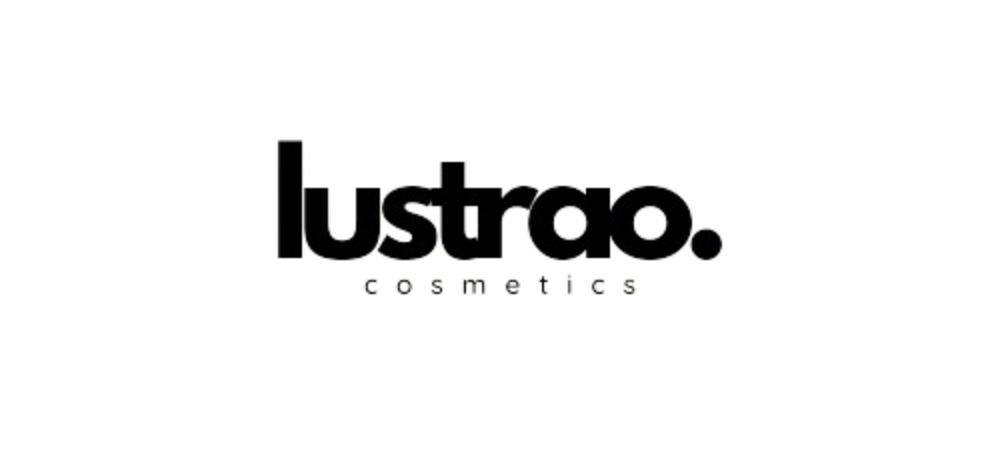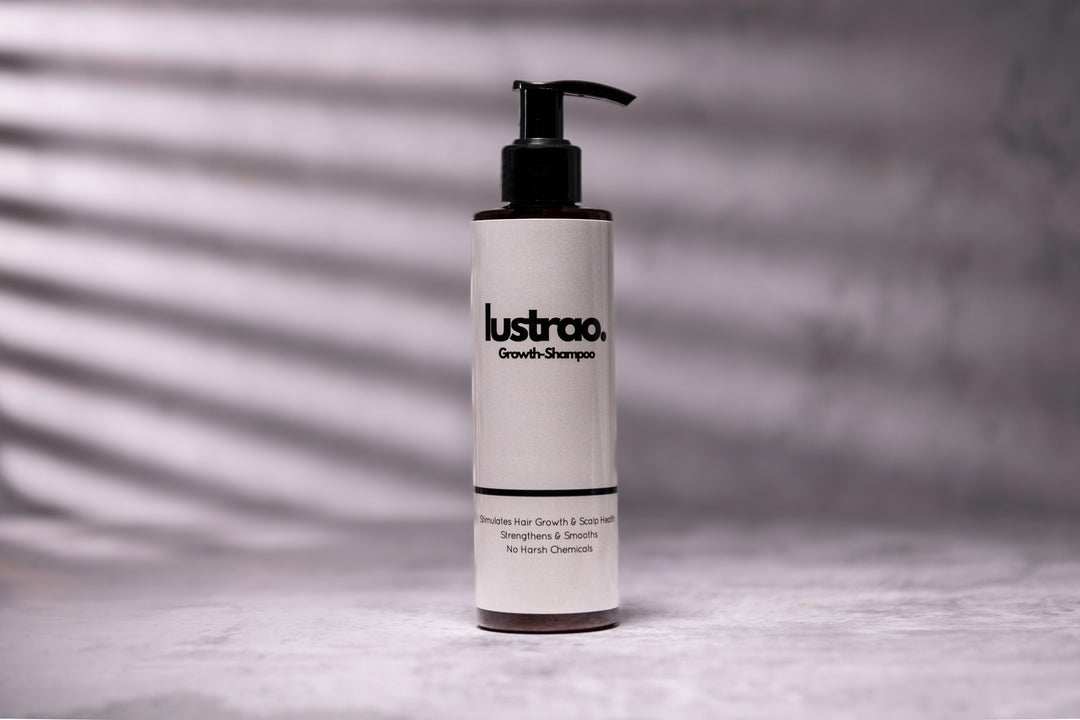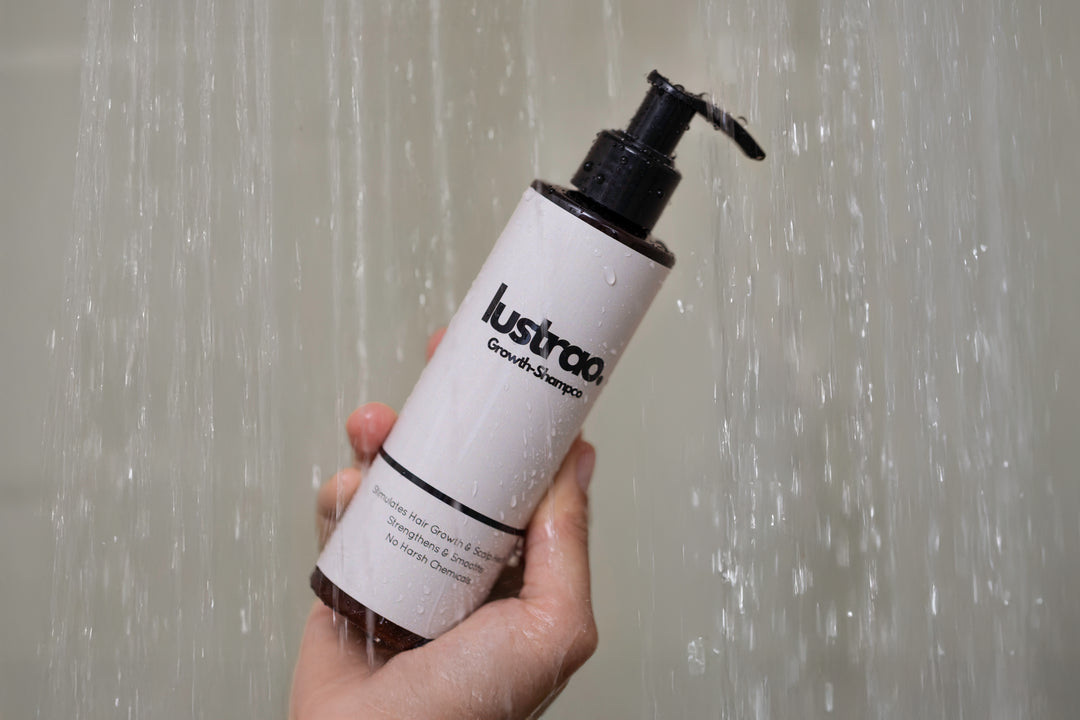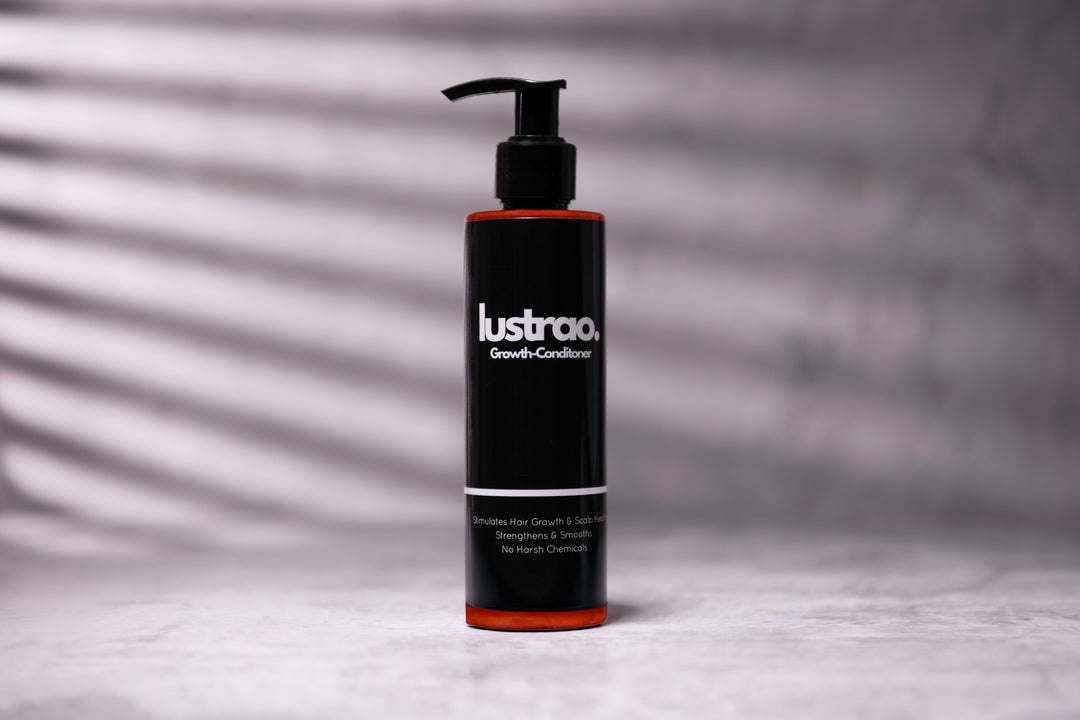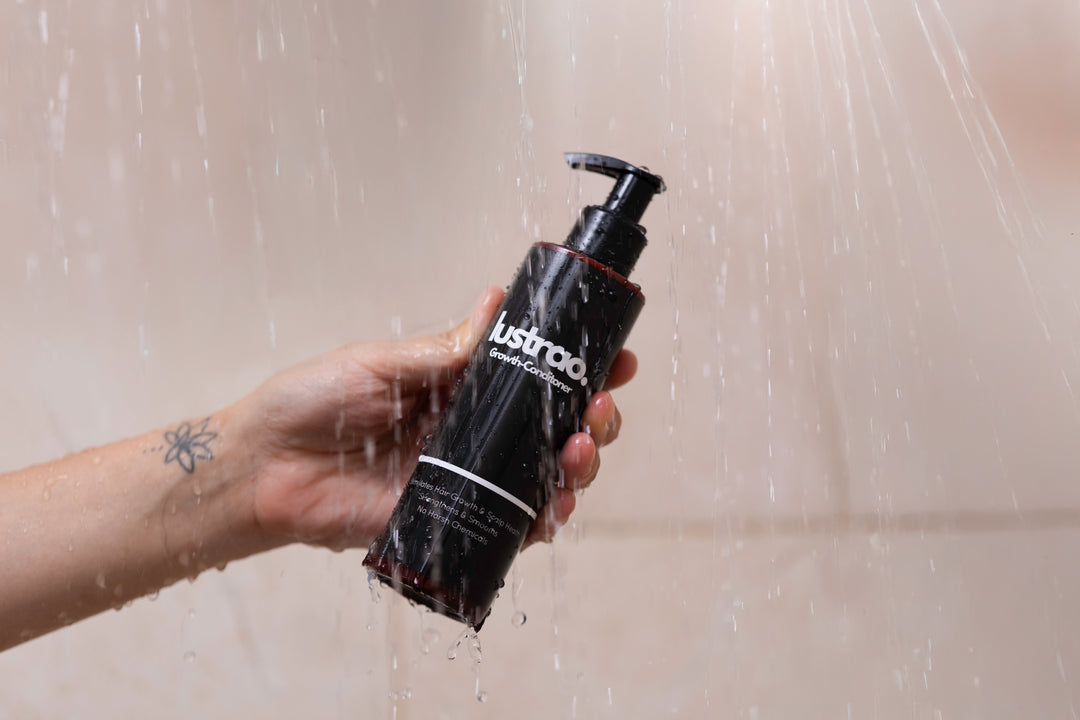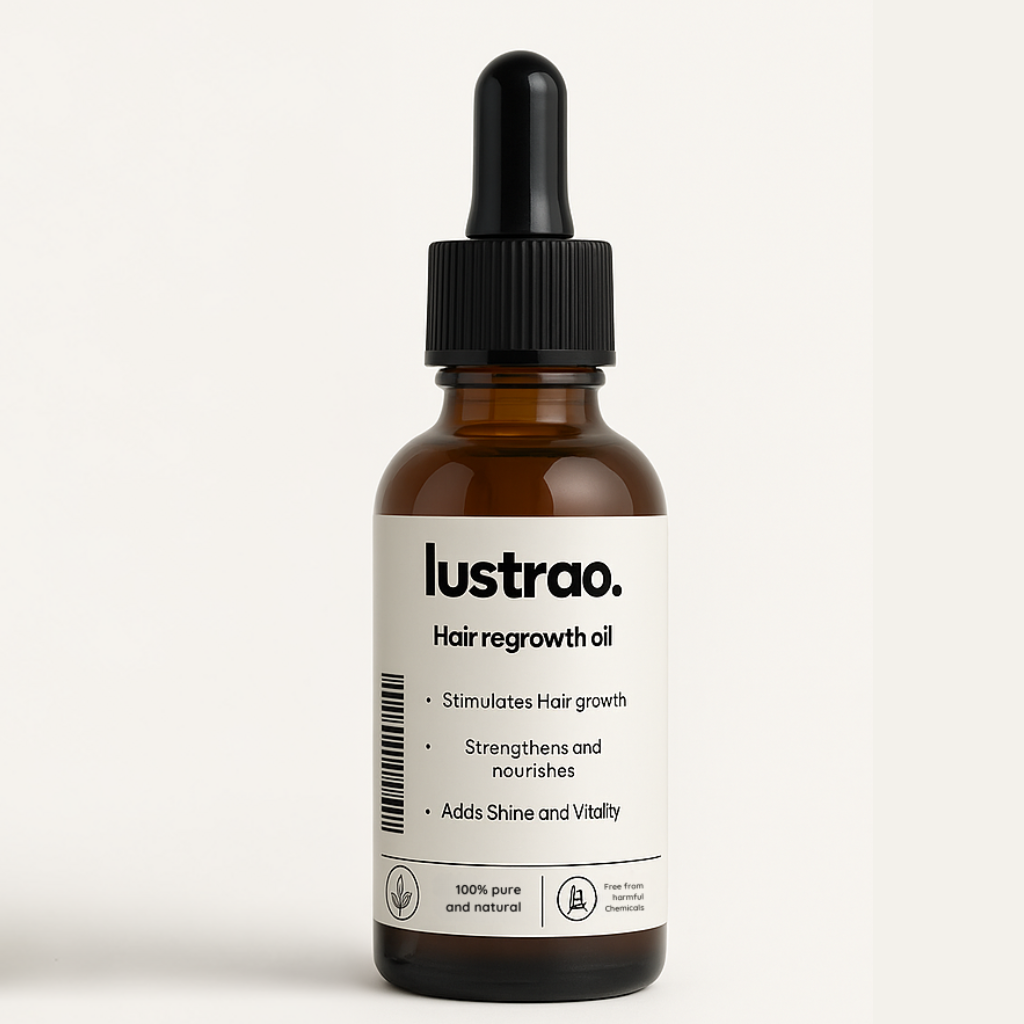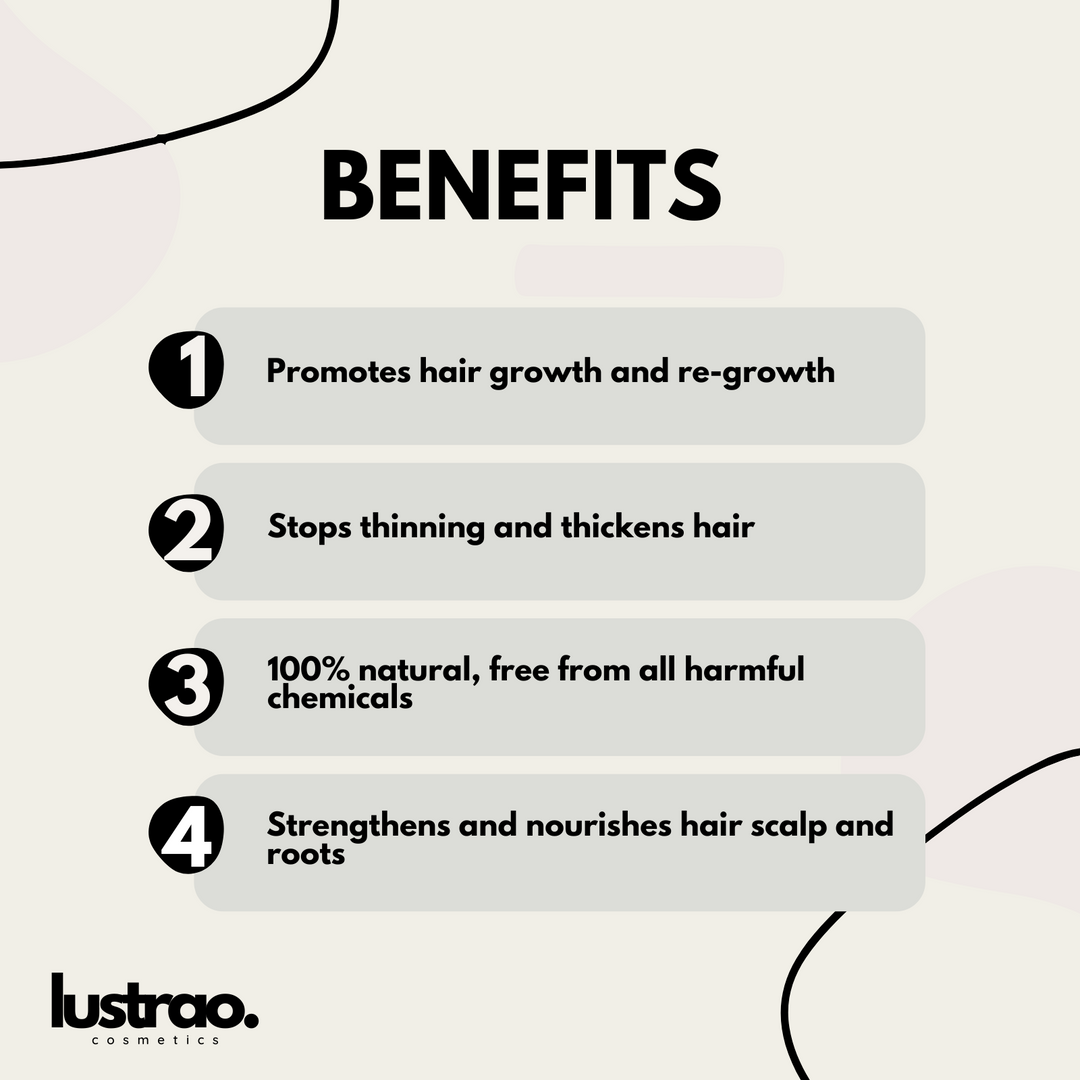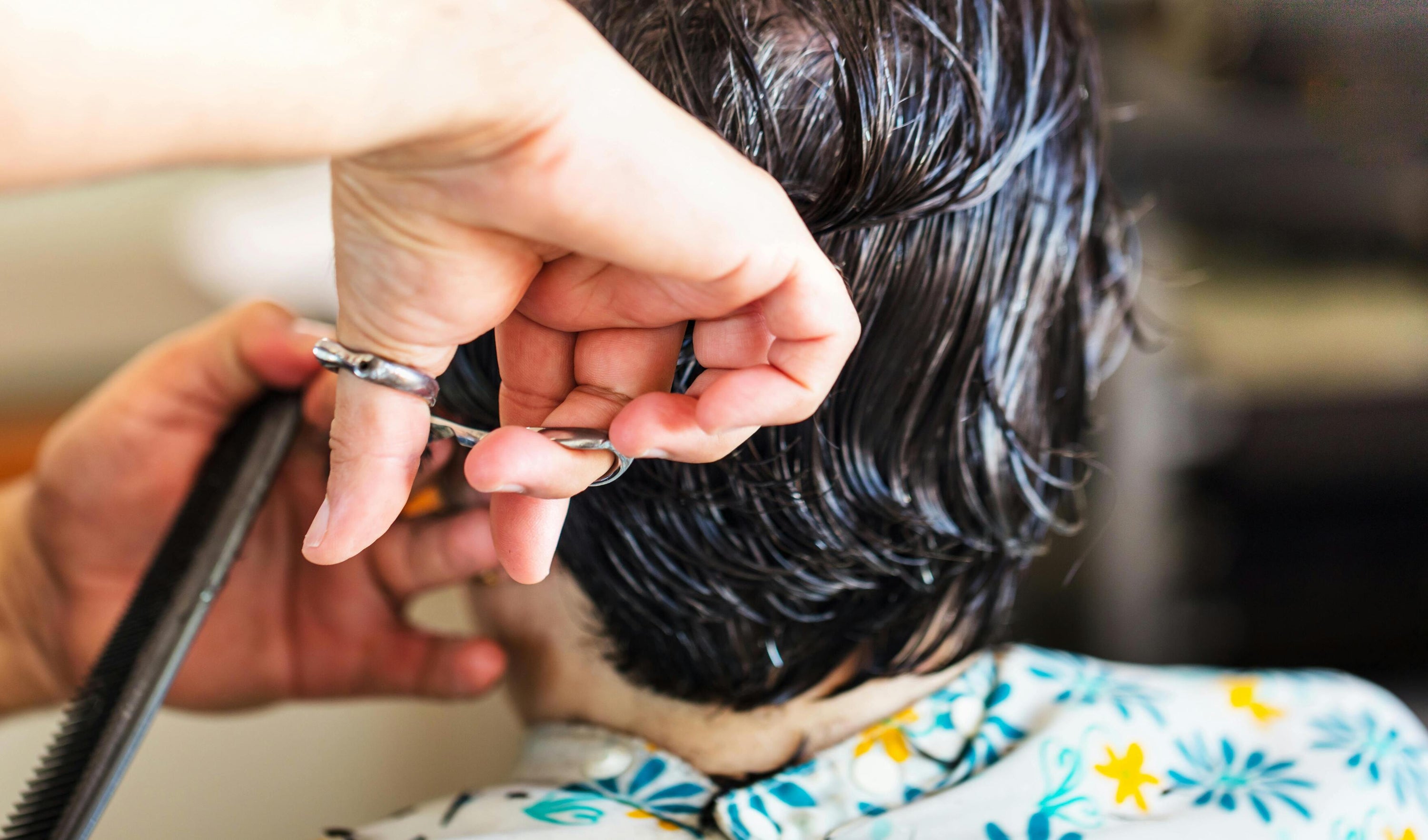
Hair Growth Myths: What Really Works and What Doesn’t (According to Science)
In this article, we’ll debunk some of the most common hair growth myths and highlight what actually works, backed by scientific research. Plus, we’ll introduce Lustrao Hair Regrowth Oil, a solution packed with ingredients proven to promote healthy hair growth.
Myth #1: Cutting Your Hair Frequently Makes It Grow Faster
One of the most persistent myths is that cutting your hair frequently will help it grow faster. However, there’s no scientific evidence to back this claim. Hair growth occurs at the scalp, and how often you trim the ends won’t affect the speed of growth. According to Dr. Angela Lamb, a board-certified dermatologist, “While trimming your hair can make it look healthier by removing split ends, it doesn’t influence the rate at which your hair grows.”What Works:
The real key to faster hair growth lies in a healthy scalp environment. Natural oils like rosemary oil and peppermint oil, both found in Lustrao Hair Regrowth Oil, help improve blood circulation to the scalp. Studies have shown that rosemary oil has DHT-blocking properties that can slow down hair thinning. In fact, a study published in Phytotherapy Research showed that rosemary oil was as effective as minoxidil in promoting hair growth, without the side effects .Myth #2: Stress Always Causes Permanent Hair Loss
Stress is often blamed for hair loss, but it’s important to distinguish between temporary shedding and permanent hair loss. Intense stress can trigger a condition called telogen effluvium, where hair enters the shedding phase prematurely. However, this is usually temporary, and hair growth typically resumes once the stress is under control.What Works:
While stress may cause temporary hair shedding, other factors like genetics, hormonal imbalances, and scalp health play a bigger role in long-term hair loss. Ingredients like Panax ginseng, found in Lustrao Hair Regrowth Oil, have been shown to strengthen hair follicles and promote growth. A study published in the Journal of Medicinal Food revealed that ginseng can stimulate hair growth by increasing dermal papilla cell proliferation.Myth #3: Hair Oils Clog Your Scalp and Cause Hair Loss
Another common myth is that using oils on your scalp can clog pores and cause hair loss. While it’s true that heavy, non-breathable oils may lead to scalp buildup if not washed out properly, this doesn’t apply to all oils. Many natural oils, like castor oil, argan oil, and olive oil, are actually beneficial for scalp health.
What Works:
Natural oils, when applied correctly, can nourish the scalp, reduce inflammation, and create a healthy environment for hair to grow. Castor oil, for example, is rich in ricinoleic acid, which has anti-inflammatory and antimicrobial properties. Lustrao Hair Regrowth Oil is formulated with lightweight oils that penetrate the scalp without causing buildup. This allows for deep nourishment while avoiding the potential downsides of heavier oils.
Myth #4: Genetics Alone Determine Hair Loss
While genetics play a crucial role in male and female pattern baldness, they are not the only factor that determines hair loss. Other factors, like hormonal changes, diet, stress, and scalp care, contribute to the overall picture of hair health.
What Works:
Hormonal imbalances, especially involving DHT (dihydrotestosterone), can accelerate hair loss. Ingredients that inhibit DHT, like rosemary oil, are a natural way to address hormonal hair loss. Scientific studies have proven that rosemary oil is an effective DHT blocker, making it a powerful natural alternative to pharmaceuticals like finasteride, which comes with a list of side effects .
Check out our detailed article on Understanding DHT: The Hormone Behind Hair Loss to learn more about how it affects hair growth.
Myth #5: Hair Loss Solutions Must Be Chemical-Based to Be Effective
One of the biggest misconceptions is that only chemical treatments like minoxidil or finasteride can effectively stop hair loss. While these treatments may work for some, they come with potential side effects, such as scalp irritation, hormonal imbalances, and in some cases, more serious health issues. Not to mention, they often require long-term use to maintain results.
What Works:
Natural solutions can be just as effective as pharmaceutical treatments—without the side effects. Peppermint oil, for example, has been shown in studies to be more effective than minoxidil in promoting hair growth in mice, without the risk of irritation or other complications. Peppermint oil’s ability to increase blood flow to hair follicles has made it a popular ingredient in natural hair growth treatments like Lustrao Hair Regrowth Oil.
For a detailed comparison of natural and chemical hair growth treatments, visit Lustrao vs. Chemical Solutions for Hair Growth.
Myth #6: There’s a Quick Fix for Hair Loss
Unfortunately, there is no quick fix for hair loss. Whether you opt for natural solutions or chemical treatments, patience is key. Hair grows at an average rate of about half an inch per month, and it takes time to see noticeable results.
What Works:
Consistency and a holistic approach to hair care are the real secrets to success. Regularly applying Lustrao Hair Regrowth Oil, maintaining a healthy diet, and managing stress are all critical components of a long-term hair growth strategy.
For more information on how nutrition plays a role in hair health, check out our article on The Role of Nutrition in Hair Health: Foods That Promote Hair Growth.
Lustrao Hair Regrowth Oil: What Makes It Stand Out?
Lustrao Hair Regrowth Oil is formulated with a blend of scientifically-backed ingredients, including rosemary oil, peppermint oil, castor oil, argan oil, Panax ginseng, and olive oil. These oils are not only proven to nourish the scalp and stimulate hair follicles, but they also work synergistically to promote stronger, healthier hair over time.- Rosemary Oil: A natural DHT blocker that helps reduce hair thinning.
- Peppermint Oil: Boosts blood circulation to the scalp, aiding hair growth.
- Castor Oil: Strengthens hair and moisturizes the scalp.
- Argan Oil:Rich in vitamin E and essential fatty acids, it nourishes the scalp and improves hair elasticity, preventing breakage.
- Olive Oil:Hydrates the scalp, reduces dandruff, and strengthens hair, preventing split ends and breakage.
- Panax Ginseng: Stimulates hair follicles and promotes growth.
To get started on your natural hair regrowth journey, try Lustrao Hair Regrowth Oil today!
FAQs
Q: How long does it take to see results with Lustrao Hair Regrowth Oil?
A: Hair typically grows about half an inch per month, so noticeable results usually take around 3-6 months with consistent use of Lustrao Hair Regrowth Oil.Q: Can Lustrao Hair Regrowth Oil be used with other treatments?
A: Yes, Lustrao can complement other natural hair care routines. However, it’s best to consult a healthcare provider before combining with pharmaceutical treatments.
Q: Is Lustrao suitable for all hair types?
A: Absolutely! Lustrao is formulated to work on a variety of hair types and textures, promoting healthy hair growth for all.
Final Thoughts
Don’t be misled by hair growth myths. Stick to science-backed solutions like Lustrao Hair Regrowth Oil, which uses proven natural ingredients to support healthy hair growth. Ready to make the switch? Check out Lustrao Hair Regrowth Oil and start your journey to thicker, fuller hair today!Share
